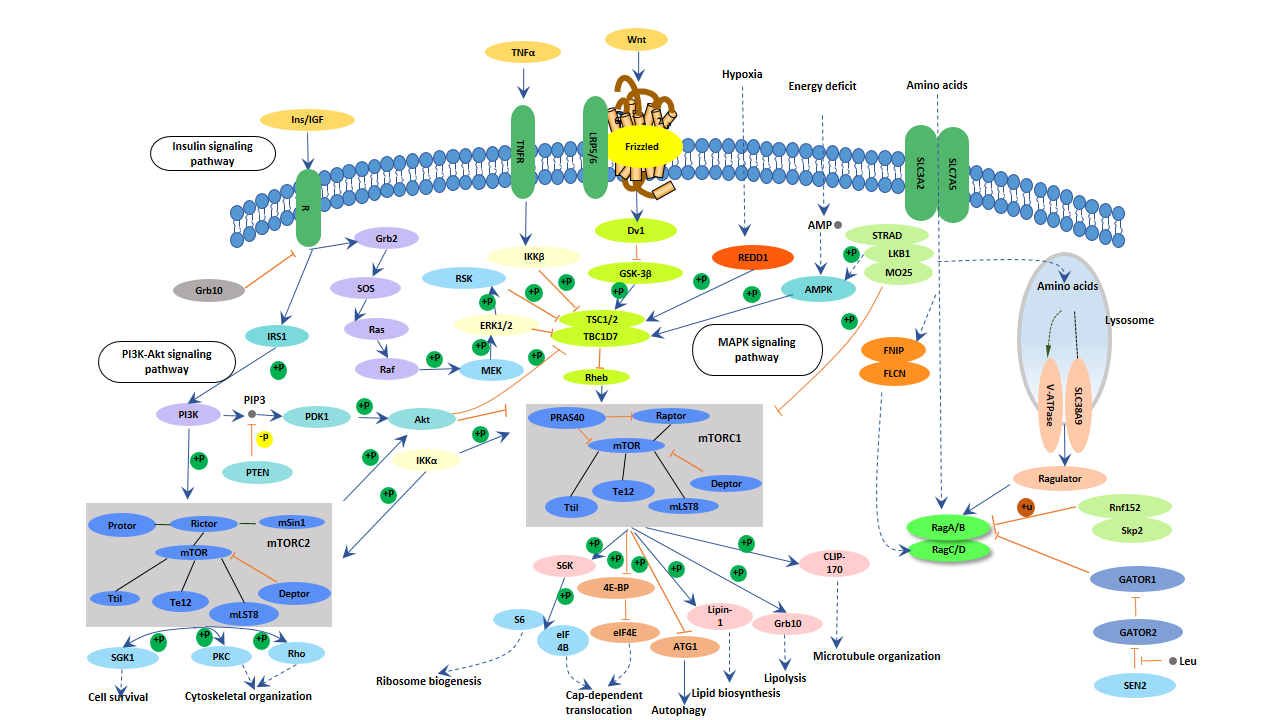
What is mTOR signaling pathway?
The mammalian target of rapamycin (mTOR) signaling pathway integrates both intracellular and extracellular signals and plays an important role in multiple cellular functions, such as cell metabolism, growth, proliferation and survival.
The function of mTOR signaling pathway
mTOR signaling controls several fundamental biological processes including translation and turnover of proteins, lipid and glucose metabolism, cellular growth, proliferation, survival, autophagy, cytoskeleton organization, etc. Aberrant mTOR signaling has been linked to the pathophysiology of diseases like cancer, cardiovascular disease, and diabetes.
The core of mTOR signaling pathway
Rapamycin (mTOR) is a highly conserved atypical serine/threonine protein kinase. mTORC links with proteins to form two multi-protein complexes serves as a core component of two distinct protein complexes, the mTOR complex (mTORC) 1 and mTORC2. The two distinct protein complex regulate different celluar processes.
As a core component of both complexes, mTOR functions as a serine/threonine protein kinase that regulates cell growth, cell proliferation, cell motility, cell survival, protein synthesis, autophagy, and transcription.
The difference between mTORC 1 and mTORC2
The two complexes contain two same parts, mLST8/GβL and DEPTOR. Besides the two parts, mTORC1 also contains Raptor and PRAS40 proteins, wherein Raptor interacts with the target of rapamycin signaling (TOS) motifs of mTOR substrates in a rapamycin-sensitive manner to activate this complex.
Contrastingly, mTORC2 also contains Rictor, mSIN1, and Protor1/2, and the functional activity of mTORC2 is dependent on Rictor and mSIN1. mTOR signaling can be activated by upstream signals including growth factors (e.g., Insulin, IGF1), cellular stress, metabolism/energy state (e.g., O2 and ATP/ADP), amino acid nutrients (e.g., Leucine and Arginine), and neurotransmitters (e.g., Neuropeptides and Glutamate).
mTOR signaling pathway and related diseases
The mTOR pathway is one of the most studied signaling pathways and is involved in trauma and various diseases in the CNS. mTOR signaling is affected in a number of neurodegenerative conditions, including Alzheimer disease, Parkinson disease, cerebral stroke and Huntington's disease, and inhibition of mTOR activity can reduce the neurodegeneration associated with these conditions.





